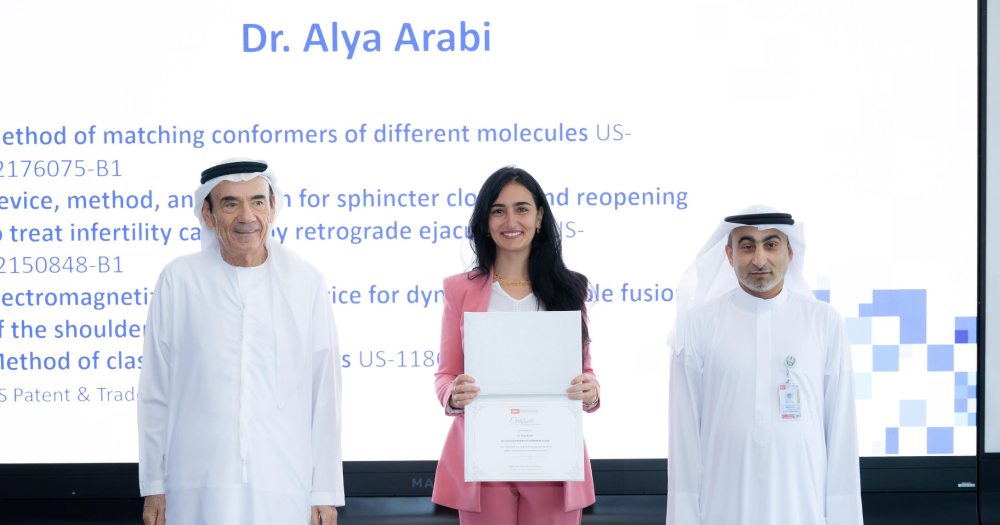UAEU researcher Dr. Alya A. Arabi granted four patents for drug design and medical devices

In a world where tech, medicine, and curiosity often walk parallel paths, one researcher at UAE University decided to make them dance. Dr. Alya A. Arabi, a computational scientist at UAEU, has just secured four patents that could shake up both drug discovery and medical device innovation. Her work blends quantum mechanics, engineering savvy, and a dose of artificial intelligence — a mix that's anything but ordinary.
"These inventions show what happens when curiosity, advanced technology, and practical problem-solving intersect," Dr. Arabi said. And she's not exaggerating.
How does it work?
Let's break it down. Two of her patents are a leap forward in in-silico drug design — a fancy way of saying drug discovery done via computer simulations, not petri dishes.
- First patent: It classifies molecular "conformers" — shapes molecules twist into — based on how they tango with proteins in the body. Think of it like a matchmaker for molecules.
- Second patent: This one helps compare conformers from different molecules, predicting if they'll behave similarly when mingling with the same protein. Basically, it tells you if two different compounds might pull the same biological strings.
"These methods are innovative advancements in in-silico drug design," said Dr. Arabi. "They facilitate drug discovery processes while reducing the reliance on resource-heavy laboratory experiments, making research more efficient."
But she didn't stop at molecules.
- Third patent: In collaboration with Harvard-affiliated orthopedic expert Prof. Bassem T. ElHassan and Eng. Ali O. Arabi, Dr. Arabi co-developed a device that restores full shoulder movement to patients suffering from complete shoulder paralysis. In cases once deemed hopeless, this innovation rewrites the script.
- Fourth patent: Another team-up with Eng. Ali O. Arabi resulted in a two-in-one biomedical device. It tackles male infertility caused by retrograde ejaculation and offers a solution for urinary incontinence. Two common health challenges. One bold fix.
Why does it matter?
This isn't just academic tinkering. Dr. Arabi's inventions speak to real, pressing human needs:
- Faster, cheaper drug development. No more waiting years and draining budgets on trial-and-error chemistry.
- Mobility restored. The shoulder paralysis solution is a godsend for patients written off by conventional medicine.
- Improved quality of life. Male infertility and incontinence are rarely talked about, but they impact millions. Solving both in one device? That's game-changing.
Zaki Anwar Nusseibeh, Chancellor of UAEU, put it best: "These patents are a remarkable testament to the spirit of scientific innovation and excellence we foster at UAEU... They contribute meaningfully to the health and well-being of communities around the world."
The context
What's striking isn't just the inventions — it's how they came to be. Dr. Arabi didn't stay in one lane. She merged computational science with medicine, quantum theory with real-world engineering, and stitched it all together with AI.
This kind of cross-disciplinary fluency is rare — and it's the kind of thinking universities like UAEU are working hard to cultivate.
As Dr. Arabi put it, "My next challenge is to translate these prototypes into market-ready products, maximizing their real-world impact."
And with four patents already in the bag, that next chapter looks promising.
💡Did you know?
You can take your DHArab experience to the next level with our Premium Membership.👉 Click here to learn more
🛠️Featured tool
 Easy-Peasy
Easy-Peasy
An all-in-one AI tool offering the ability to build no-code AI Bots, create articles & social media posts, convert text into natural speech in 40+ languages, create and edit images, generate videos, and more.
👉 Click here to learn more


